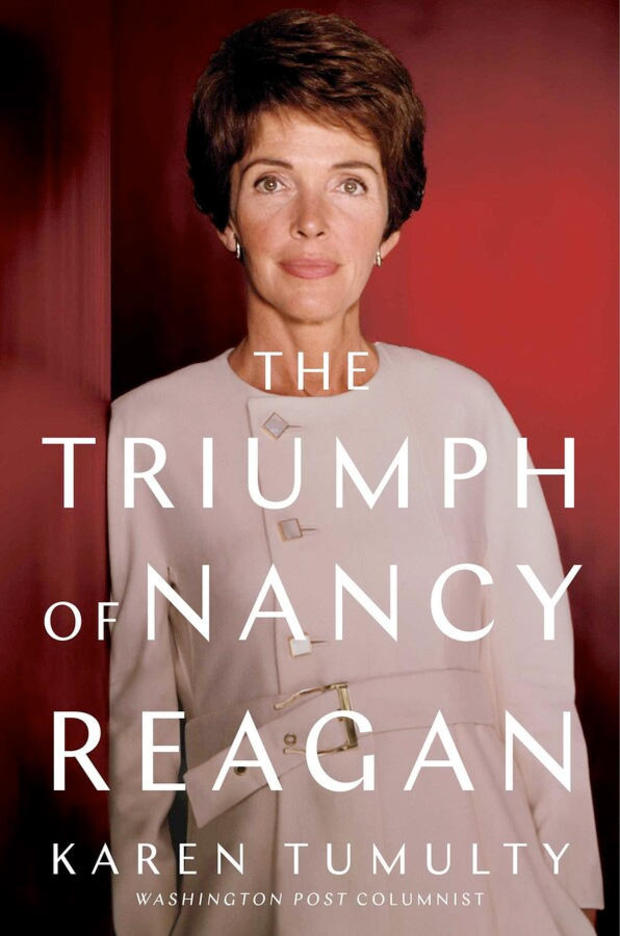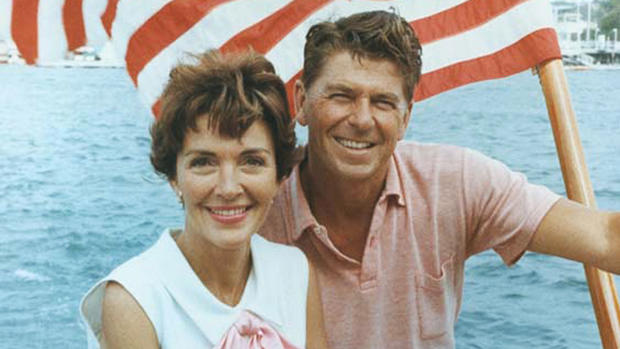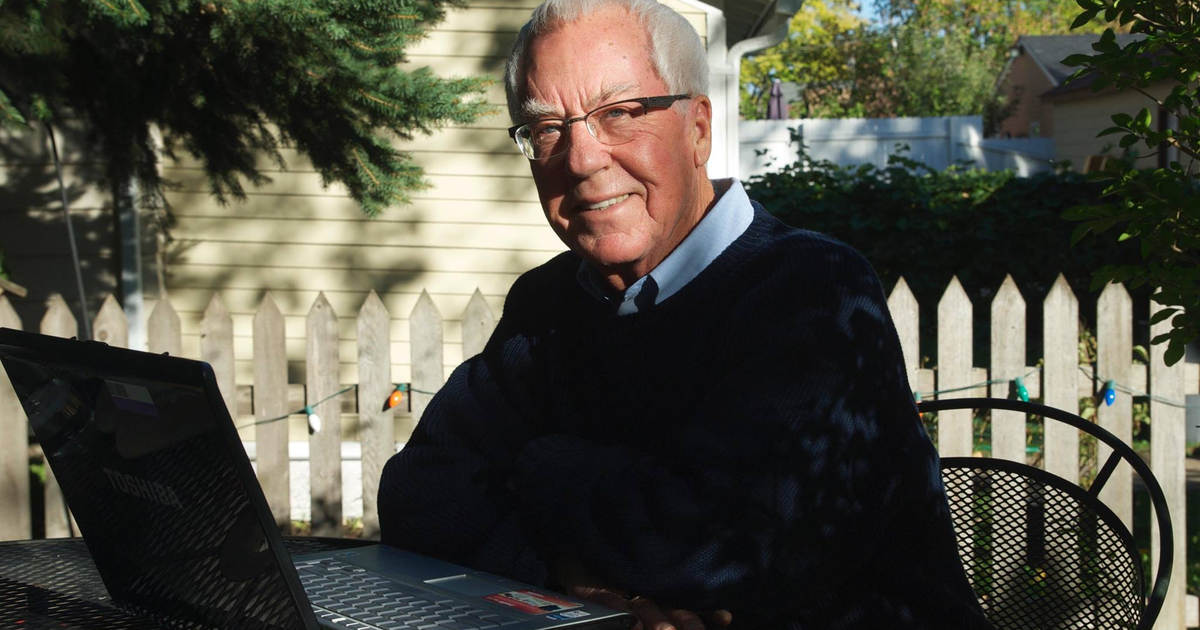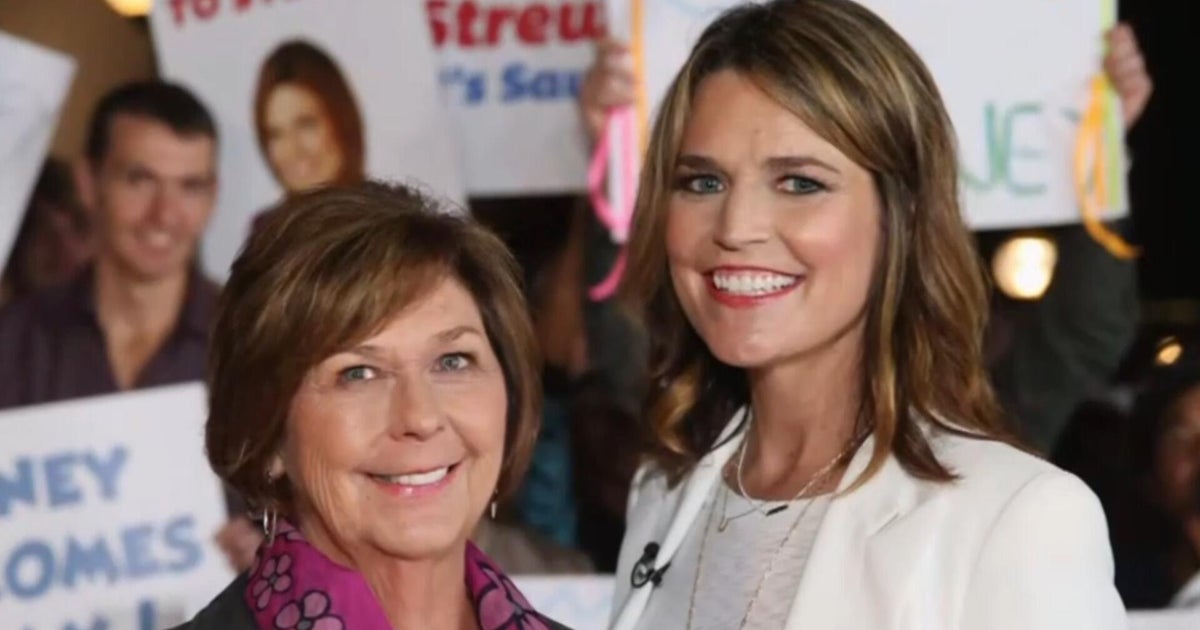The devotion of Nancy Reagan
For most of the 1980s, Nancy Reagan was the glamorous first lady known for her adoring gaze upon the president, for which she was often criticized. But in her new book, "The Triumph of Nancy Reagan" (published by ViacomCBS' Simon & Schuster), Washington Post columnist Karen Tumulty says there was a lot of depth and heft to this woman.
"She was an incredibly complicated person, and her demons were such that she brought a lot of her troubles on herself," Tumulty told "60 Minutes" correspondent Lesley Stahl.
The troubles she brought on herself had to do with her image.
Stahl said, "I remember when she was first lady, there was a recession, and he was cutting social programs, and she decides she's gonna redecorate the White House, she's gonna buy very expensive china for the White House. It was as if she had no antennae?"
"One of the great mysteries about Nancy Reagan is that a woman who was so attuned to her husband's public image, could be so clueless about her own," Tumulty replied.
For instance, she wore expensive designer clothes, but it came out that many of them were freebies.
Tumulty said, "Basically, there were two stereotypes of her: that she was sort of a vapid socialite, Or that she was the scheming power behind the throne."
In 1985 Nancy Reagan told "CBS Morning News," "Oh, I certainly hope I'm one of the powers in his life. He's one of the powers in my life."
Jim Baker, who was the White House chief of staff in the first term of the Reagan administration, told Stahl, "Whenever we needed to get something done, we would make sure we went to her because we knew she had the most significant influence on President Reagan."
"She wanted her image to be the little woman smiling, gazing up adoringly, and kind of hid the depth that she had?" asked Stahl.
"That's correct," he replied. "She did not want to be seen to be the power behind the throne. But she was an extraordinarily influential person behind the throne."
One of the ways she used her influence was to try to get the president to tone down some of his rhetoric.
Tumulty noted, "She hated the phrase 'evil empire' that he used to describe the Soviet Union. And she and he would quarrel about it, in front of other people. She just thought it was a terrible mistake to be framing it that way."
She lost that fight, but was more successful when it came to the AIDS epidemic. After the death of actor Rock Hudson, she persuaded the president – after six years of silence - to make his first big public speech before the AIDS Research Foundation chaired by Elizabeth Taylor
But she worried that the regular White House speechwriters were too ideological.
"She's afraid if the White House writes the speech, it's gonna come off as too harsh, that, you know, a lot people and the Reagan administration didn't really see AIDS as a health crisis, they saw it as a moral crisis," Tumulty said. "So, she goes out and recruits the speechwriter who will write the speech."
"This is a battle against disease, not against our fellow Americans," President Reagan said. "We mustn't allow those with the AIDS virus to suffer discrimination."
Mr. Reagan's most unpopular stretch was during the Iran-Contra affair, when it was revealed that – contrary to his public statements – the administration was selling arms to Iran in exchange for American hostages held in Lebanon.
Realizing that damage control was needed, Nancy Reagan leaned on the president once again.
Tumulty said, "She really, in ways that people didn't recognize at the time, put together the rescue effort. She persuades her husband that he is going to have to admit to the country, and admit to himself, that he has traded arms for hostages."
"And she's the one who pushes that?" asked Stahl.
"She does, to the point of sneaking people up into the residence to help her make her case."
On March 4, 1987, President Reagan addressed the nation: "A few months ago, I told the American people I did not trade arms for hostages. My heart and my best intentions still tell me that is true, but the facts and the evidence tell me it is not."
Nancy Reagan blamed Iran-Contra on the man who replaced Jim Baker as chief of staff, Don Regan. "She begins this campaign to get rid of him," Tumulty said. "And her husband refuses to fire the guy. Finally, she starts calling Regan, and he would pick up the phone to hear the First Lady's voice at the other end of the line say, 'Oh, Don, are you still here?'"
As Nancy Reagan explained on "60 Minutes" in 1989, "My antennae always go up when I feel somebody is trying to end-run Ronnie and has their own agenda. And that's when I step in."
It came to a head when Regan made fateful mistake: he slammed the phone down on the first lady.
"Word gets out," said Tumulty. "Now, rather than Nancy Reagan just telling her husband this herself, she leaks it to the news media. The Reagans are sitting there watching television one night in the executive residence, and Reagan hears this report that the Chief of Staff has slammed down the receiver on his wife."
Baker laughed, "Someone asked me one time, they said, 'What do you think about that?' I said, 'Are you kidding? That's a hanging offense!'"
And it was. Regan was gone.
Stahl said, "To me, that episode shows that she, by that point, was playing with the big boys."
"She's very shrewd," Tumulty said. "If she can't move her husband one way, she withdraws, she regroups, and comes at him from a different direction."
President Reagan's crowning achievement was breaking the ice with the "evil empire" and starting a face-to-face dialogue with the Soviet leader, Mikhail Gorbachev.
Tumulty said, "She would always say that she never got involved in policy questions – "
"Oh, please …" Stahl interjected.
"Exactly. She was relentless, among other things, in pushing her husband to negotiate with the Soviets."
Baker recalled, "I remember so vividly her saying to him, 'Ronnie, you need to sit down with Gorbachev and talk with him.' I mean, that's the kind of influence I think she had on him in a number of different instances."
"She really envisioned that this would be Ronald Reagan's place in history, as a peacemaker and not a warmonger," Tumulty said.
Of course, that was near the end of the Reagan administration. But early on, Ronald Reagan was shot less than three months after his inauguration. What wasn't known at the time was that he came very close to dying.
Stahl asked Baker, "How did things change for her in the White House after he was shot?"
"She became very, very – not paranoid, but very nervous any time there was gonna be a public event," he replied. "And it was only after that attempt that she began, I think, to regularly consult her astrologer friend."
Tumulty said, "This was kept a great secret within the White House, known only to a few. Michael Deaver would sort of carry out the scheduling decisions that the astrologer demanded."
Reagan explained why she turned to an astrologer by saying, "Each person has his own way of coping with trauma."
Tumulty said, "It was her way of getting through each and every day knowing that around the next corner, you know, danger, treachery could be waiting for her husband."
Theirs was one of the great, long-lasting love stories, and in her book Tumulty writes about how incredibly devoted they were. "People would think that this gaze that she fixed on him, it must have been an act," she said. "But this was the way they were with each other publicly and in private."
"She gazed at him in private?" Stahl asked.
"They would, they were very affectionate. He would leave notes for her all over the place. Passionate, passionate letters he would send her. And there's a moment in his diary after he was almost assassinated, and he writes about opening his eyes in the hospital and seeing her face there. And he writes, 'I just hope there will never be a day where I open my eyes and do not see that face, because in all the ways that God has blessed me, she is the biggest gift I've gotten.'"
It was heartbreaking for her – for everyone – when he succumbed to Alzheimer's. Nancy Reagan spoke about it on "60 Minutes" in 2002, when she was asked by Mike Wallace if caring for someone with Alzheimer's was lonely: "Yes, it's lonely, 'cause really when you come right down to it, you're in it alone. And there's nothing that anybody can do."
Tumulty said, "Ultimately, when he is incapacitated by Alzheimer's disease, where he begins this long journey to a place where she cannot follow him, it really does fall on her shoulders to protect the legacy."
Stahl said, "If you didn't admire her while she was in the White House, you certainly came to when she took care of him."
"It's one of the tragedies," Tumulty said. "I mean, for the acclaim that finally came her way, she paid the highest price imaginable."
READ AN EXCERPT: "The Triumph of Nancy Reagan" by Karen Tumulty
For more info:
- "The Triumph of Nancy Reagan" by Karen Tumulty (Simon & Schuster), in Hardcover, eBook and Audio formats, available April 13 via Amazon and Indiebound
- Karen Tumulty, The Washington Post
- James Baker, Baker Institute for Public Policy, Rice University
- The Ronald Reagan Presidential Library
Story produced by Kay Lim. Editor: Lauren Barnello.





